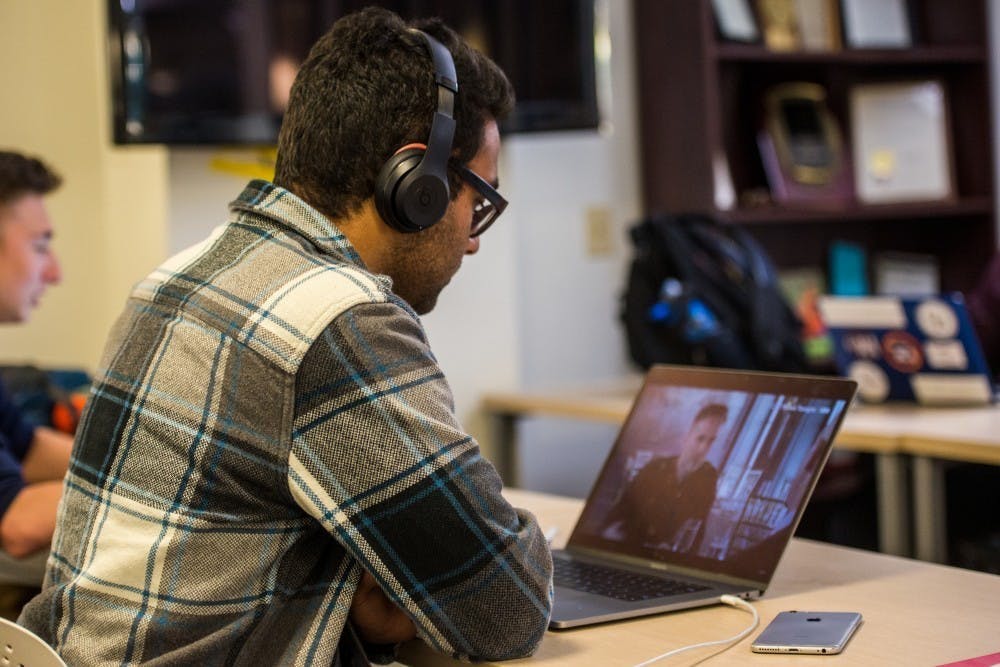COVID-19 is an extremely threatening virus, which has no known cure or treatment and lasts for widely varying lengths of time. These factors would make the virus incredibly harmful to any student who is infected by potentially interrupting their studies for months. Not only could this disease significantly impact a student’s education and potentially delay their graduation, but the disease could even be fatal in its worst cases. With the recent advent of COVID-19 cases in Washington, D.C. and as many as eight cases in Virginia, the University must take action to contain the virus and protect both its students and faculty from its spread.
The University currently has put forth no mandatory action domestically to prepare for the virus, only cancelling its trips abroad. Though no cases have been reported in the University community thus far, students will soon be returning from spring break travel — possibly from international travel — and thus risk exposing the community at large. Additionally, COVID-19 poses the highest risk to older people, a group that includes many of the University’s faculty who will come into contact with hundreds of students every day. The University must take time off from in-person lectures immediately after spring break — this would allow for the isolation of at-risk individuals until the incubation period has passed in order to avoid a health crisis.
While shutting down the University for any amount of time may seem like an overreaction to a virus that has not even reached the University community yet, taking time off now would be the least disruptive way to reach the two-week incubation period. Online classes are clearly a viable option as shown by Stanford University’s two-week closure. In fact, this would be a very small measure compared to Japan’s preventative measures of closing all schools for approximately a month — something ordered directly by the prime minister. These closings are key to contain the outbreak of a global pandemic that the United States is “wildly unprepared” to handle. These closings are, in fact, not as disruptive as they seem — many classes at the University already provide recorded lectures at students’ requests, which allow for learning to continue without in-person classes. Online lectures have been demonstrated to be almost equally as effective as a traditional classroom environment, indicating that switching to recorded lectures and online assignments would not be significantly detrimental to students.
Students being infected with COVID-19 would significantly impact their education to an unacceptable degree. This does not even consider the risk of faculty being infected, which would derail classes for hundreds of students for months on end — the risk of widespread interruption for the entire school is far greater than the disruption that would be suffered by a week or two of quarantine. Regardless of any costs or benefits of eliminating in-class lectures for two weeks, the safety of students must be the most important consideration in all scenarios — cancelling or making classes remote for two weeks is the only way to ensure their safety.
The University clearly understands the gravity of the situation — they have cancelled spring break trips and cancelled all study abroad programs to level three infection sites. The University’s international policy is clearly well set up for this situation, but their domestic policy leaves much to be desired. The No. 1 priority should be making sure the immediate community is safe and secure. Currently, this is not happening. This failure threatens the security of the University and does not instill confidence in students returning from spring break threatened by widespread panic over COVID. Additionally, a surprising amount of misinformation about the virus has been propagated online, and students at the University have not been thoroughly educated on how to contain its spread — information on how to effectively self-quarantine is an essential next step for the University to take in addition to direct action on behalf of students.
Perhaps the most important component of this issue is the uncertainty students are faced with. They return without knowing if any of their peers have been infected or exposed to the virus, and they do not know if there are any preventative measures in place for when the virus inevitably makes its way to Grounds. Students will be returning worried about their health and safety and possibly be unable to concentrate on their studies. The University owes its students a safe and healthy environment, and this simply cannot exist without cancelling in-person classes and creating a viable opportunity for students to self-quarantine.
Carson Flickinger is a Viewpoint Writer for the Cavalier Daily. He can be reached at opinion@cavalierdaily.com.
The opinions expressed in this column are not necessarily those of The Cavalier Daily. Columns represent the views of the authors alone.







